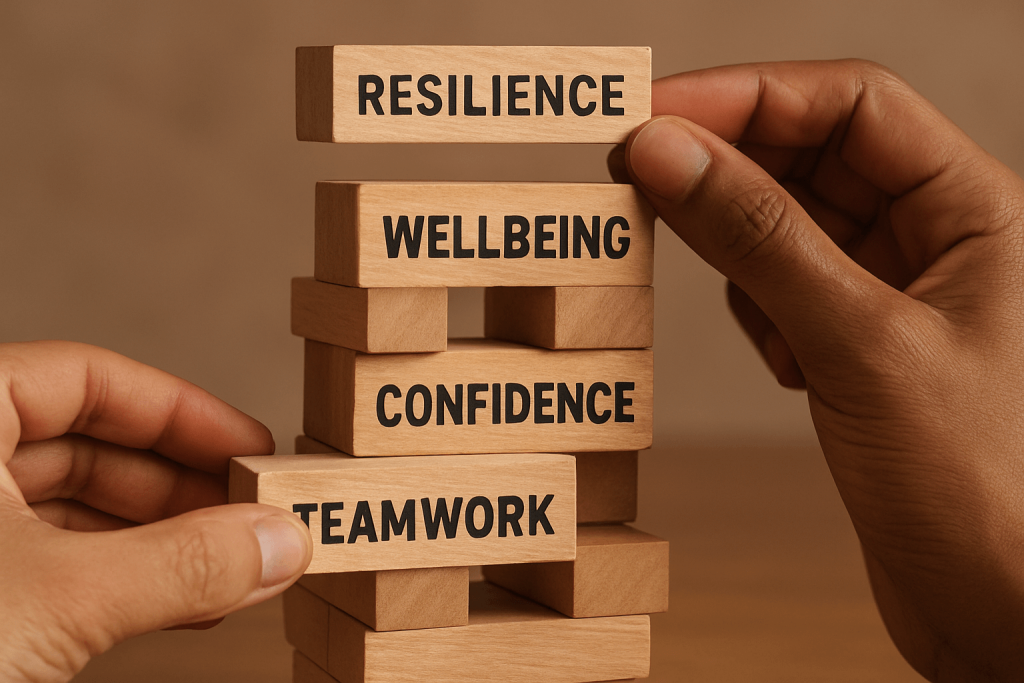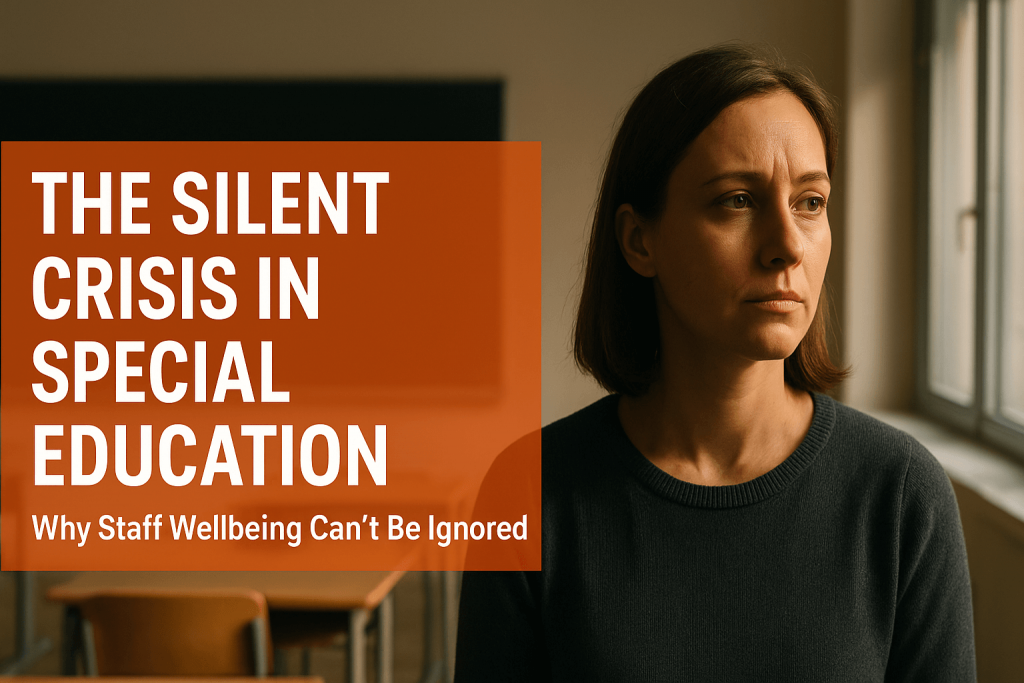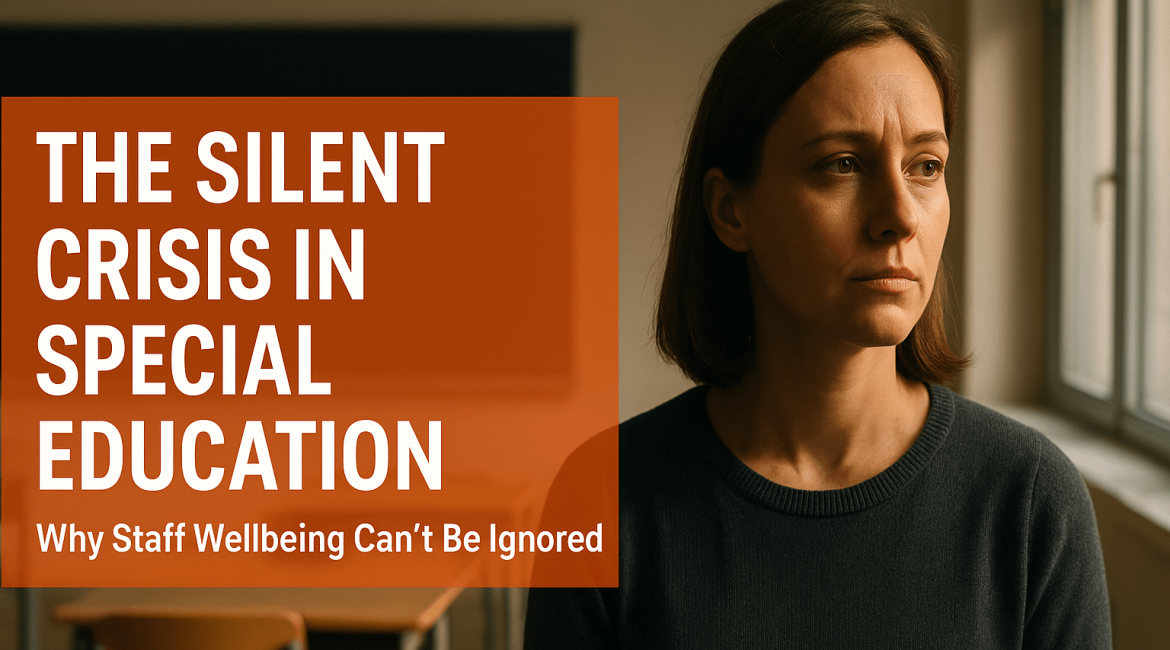The Silent Crisis: When Supporting Special Needs Staff Becomes a National Emergency
In schools for children with autism, every day can be both rewarding and relentlessly demanding. Yet, while society celebrates the breakthroughs of these exceptional pupils, the wellbeing of the adults guiding them is often overlooked.
The resilience, patience, and self-belief required from teachers and support staff in specialist autism settings surpasses almost any other educational environment—and the cost of neglecting this truth is rising fast.
As someone who has personally worked with autistic pupils and their dedicated staff in both primary and secondary settings, I have witnessed first-hand the extraordinary balance of compassion and endurance required. When I was invited to Helen Allison School (part of the National Autistic Society) to lead a two-hour Resilience Day for 70 staff members, it was clear that while passion and purpose ran high, exhaustion, emotional fatigue, and silent burnout were never far behind.
The Hidden Toll of Special Education Work
Research from the British Journal of Special Education (2022) found that over 65% of teachers in autism-focused schools report experiencing high emotional exhaustion, compared to 45% in mainstream education. A NASUWT study similarly revealed that one in three specialist educators had considered leaving the profession within two years due to mental health strain.
Why? Because teaching and supporting children with autism requires constant emotional regulation, rapid problem-solving, and an unshakeable commitment to inclusion. Staff often absorb the emotional intensity of their pupils’ sensory, behavioural, and communicative challenges—while simultaneously managing academic progress and safeguarding.
According to a 2023 Education Support Partnership report, wellbeing and retention rates in SEND schools are reaching critical levels. Staff who lack structured wellbeing frameworks or access to mental health support are 52% more likely to experience anxiety or depressive symptoms. This is not just a wellbeing issue—it’s an institutional sustainability issue.

Resilience: The Backbone of the Specialist Educator
Resilience isn’t about “toughing it out.” It’s the learned ability to recover, adapt, and grow stronger in adversity. In the context of specialist schools, it’s the key ingredient that transforms stress into strength.

During my Resilience Day at Helen Allison School, I led a keynote session and interactive workshops exploring topics such as:
- Wellbeing Wonders of Life – rediscovering gratitude and purpose
- The More Productive You – balancing empathy with efficiency
- Mindful–Patience–Happiness Daily Practices – establishing rituals for calm and clarity
- Stress Buster Techniques – body movement and breathwork to restore focus
- Colleague Morale Boosting with Kindness & Connectivity – rebuilding team spirit
- Discovering Peak Performance in Yourself and Your Team – creating resilience ecosystems
Through exercises like Resilience Tower Building, Endorphin Movers, and Team Gamification Challenges, the staff reconnected with their energy, their purpose, and—most importantly—the joy that had drawn them into education in the first place.
Science supports this experiential approach. Studies by The University of Pennsylvania’s Positive Psychology Centershow that positive emotional engagement increases resilience by up to 30% in high-stress professions. Physical movement, laughter, and team-based interaction release dopamine and endorphins, directly reducing cortisol levels—the body’s main stress hormone.

The Confidence Crisis: Why Belief Matters
Self-confidence in specialist education staff is not about ego—it’s about belief in one’s capacity to make a difference amid constant uncertainty. Teachers and support workers are often the first to doubt themselves when a child’s progress plateaus or behavioural outbursts escalate. Without self-belief, burnout accelerates.
According to the National Institute for Health and Care Excellence (NICE), educators who receive regular positive reinforcement and professional affirmation show a 41% higher rate of job satisfaction and a 28% reduction in reported stress symptoms. Confidence grows not from perfection but from consistent, meaningful recognition.
That’s why part of my workshop focuses on “The More Productive You”—reframing confidence not as bravado but as sustainable self-trust built through micro-successes, teamwork, and daily wellbeing rituals.
Wellbeing Awareness: The New Leadership Priority
Leadership teams across education must urgently recognise that wellbeing is not a side initiative—it’s the infrastructure of quality education. If the emotional foundation of specialist staff crumbles, the impact cascades down to pupils, parents, and entire institutions.
A 2024 Cambridge Wellbeing Institute review found that schools with embedded wellbeing programmes report 25% fewer staff absences and a 15% increase in student engagement. Yet fewer than half of UK special schools currently allocate budget or time for regular wellbeing training or external facilitation.
This is where external support plays a vital role. External facilitators provide fresh perspective, renewed motivation, and a safe space for emotional reset. When staff are reminded of their collective strength and purpose through experiential sessions, resilience becomes cultural—not circumstantial.
👉 Access my free 8-part video series: “Resilient Classrooms, Resilient Staff: The Wellbeing Advantage in Education” for practical frameworks and inspiration on embedding resilience into your school community….
Which will be found on The SHOP Page of the website.
Mental Health: From Stigma to Strategy
The World Health Organization defines burnout as a “syndrome resulting from chronic workplace stress that has not been successfully managed.” In autism education, this definition feels especially relevant. Long hours, emotionally charged environments, and a deep sense of responsibility can quietly erode even the most passionate professional’s wellbeing.
Mental health strategy in schools must evolve from reaction to prevention. That means embedding resilience training, promoting open dialogue, and providing staff with access to movement-based wellbeing sessions, peer support groups, and mindfulness tools.
At Helen Allison School, by the end of the Resilience Day, many staff shared how re-engaging with wellbeing practices—even simple breathing techniques or movement breaks—helped them regain focus and hope. These are not luxuries; they are survival tools for today’s educators.
The Call to Action
If governing bodies, headteachers, and education CEOs fail to prioritise staff wellbeing in specialist autism schools, the results could be devastating. Recruitment shortages, emotional burnout, rising absenteeism, and declining pupil outcomes will become the new norm.
But there is another path—one that embraces resilience as a leadership strategy, confidence as a teaching tool, and wellbeing as the engine of educational excellence.
👉 For leaders ready to take action, explore the 8-part VIDEO series
“Resilient Classrooms, Resilient Staff: The Wellbeing Advantage in Education”, a resource designed to help you strengthen your team’s emotional and professional foundations
Which will be found on The SHOP Page of the website.
Final Note
Every educator who walks into a classroom for children with autism is not just teaching—they are performing daily acts of patience, creativity, and compassion that change lives. It’s time their own wellbeing is treated with the same importance.
If your school, association, or governing body would like a keynote talk, workshop, or custom video content designed to strengthen your staff’s wellbeing, please contact Courtney Orange at info@courtneyorange.com.
Together, we can ensure the future of special education isn’t one of burnout—but one of balance, resilience, and collective brilliance.




